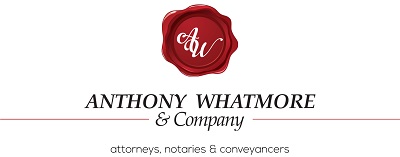Legal Matters - It’s Not Simple to Sell a House in Execution (Even if a Trust Owns It)
“A court shall not authorise execution against immovable property which is the primary residence of a judgment debtor unless the court having considered all relevant factors, considers that execution against such property is warranted” (High Court Rules)
Selling a house in execution is not as simple as getting judgment and sending the Sheriff of the Court off to arrange a sale.

This article is important to you if –
- You are about to lend money to, or do business with, an individual (or a trust or company) that you feel comfortable dealing with because they own a substantial asset in the form of a house.
- You are trying to enforce a judgment against a recalcitrant debtor by selling the debtor’s house.
- You live in a house threatened with sale in execution (or are trying to help a friend or relative in that position).
- The “owned by a trust” angle (more on that below) will also be relevant to you if you are wondering whether to buy a residential property in your own name or in a trust or company.
The “judicial oversight” rule means delay and risk for the creditor
High Court Rules provide that “A court shall not authorise execution against immovable property which is the primary residence of a judgment debtor unless the court having considered all relevant factors, considers that execution against such property is warranted.”
This is to give effect to the right to have access to adequate housing which is enshrined in section 26 of our Constitution, and the court will look at whether the property is the primary residence of the debtor, at whether there may be an alternative means of satisfying the judgment debt, and at a host of other relevant factors.
Bottom line is that the court will not order an execution sale if it concludes that execution isn’t warranted or will deprive the debtor of adequate housing. Even a successful application for execution will involve cost and delay, whilst an unsuccessful one will be a body blow to the creditor’s prospects of recovering the debt.
That’s clearly a factor to bear in mind when lending to, or transacting with, an individual. But what if the house is owned by a trust or company?
The case of the trust-owned wine farm
- A bank loaned R8.5m to a trust operating as a wine farm, wine cellar, wine merchant and restaurateur. The loans were secured by mortgage bonds over the property. Trustees, trust beneficiaries and trust employees occupied the house and cottages.
- When the trust failed to repay the loans, the bank took judgment against it and applied for an order to sell the property in execution, an application vigorously opposed by the trustees.
- The High Court held that the judicial oversight procedure only applies when a property is the debtor’s primary residence. In other words, it wouldn’t apply in a case such as this where, although the debtor is a trust, the actual occupants are individuals.
- Not so, held the Supreme Court of Appeal on appeal: “Due regard must be had to the impact that the sale in execution is likely to have on vulnerable and poor beneficiaries who are occupying the immovable property owned by the judgment debtor, who are at risk of losing their only homes.” Moreover, the fact that the farm was used commercially did not deprive the occupants of constitutional protection.
- “Judicial oversight” was accordingly necessary despite the properties being owned by a trust and not by the occupants themselves. Note that there are indications in the judgment that although this case concerns trust-owned property, the oversight principle is likely to apply equally to the occupants of company-owned properties.
- On the facts however, the trustees had failed to show that “as a result of indigence, the beneficiaries will be left vulnerable to homelessness if the farm in question is sold in execution. On the contrary, the farm is valued at between R35 million and R40 million, and the reserve price was fixed at a minimum of R21 million; the ability to acquire alternative accommodation is unquestionable.” Also relevant – at one stage of negotiations, the trustees had actually consented to the judgment and to the property being declared executable.
The practical result is a win for the bank and the farm can now be sold in execution. But the principle remains - don’t assume that lending money to, or transacting with, a home-owning trust or company is a safe bet because of the value in the property. It carries the same risk as if the property were owned and occupied by an individual debtor.
Provided by Anthony Whatmore & Company

© DotNews. All Rights Reserved.
Disclaimer
The information provided herein should not be used or relied on as professional advice. No liability can be accepted for any errors or omissions nor for any loss or damage arising from reliance upon any information herein. Always contact your professional adviser for specific and detailed advice.






